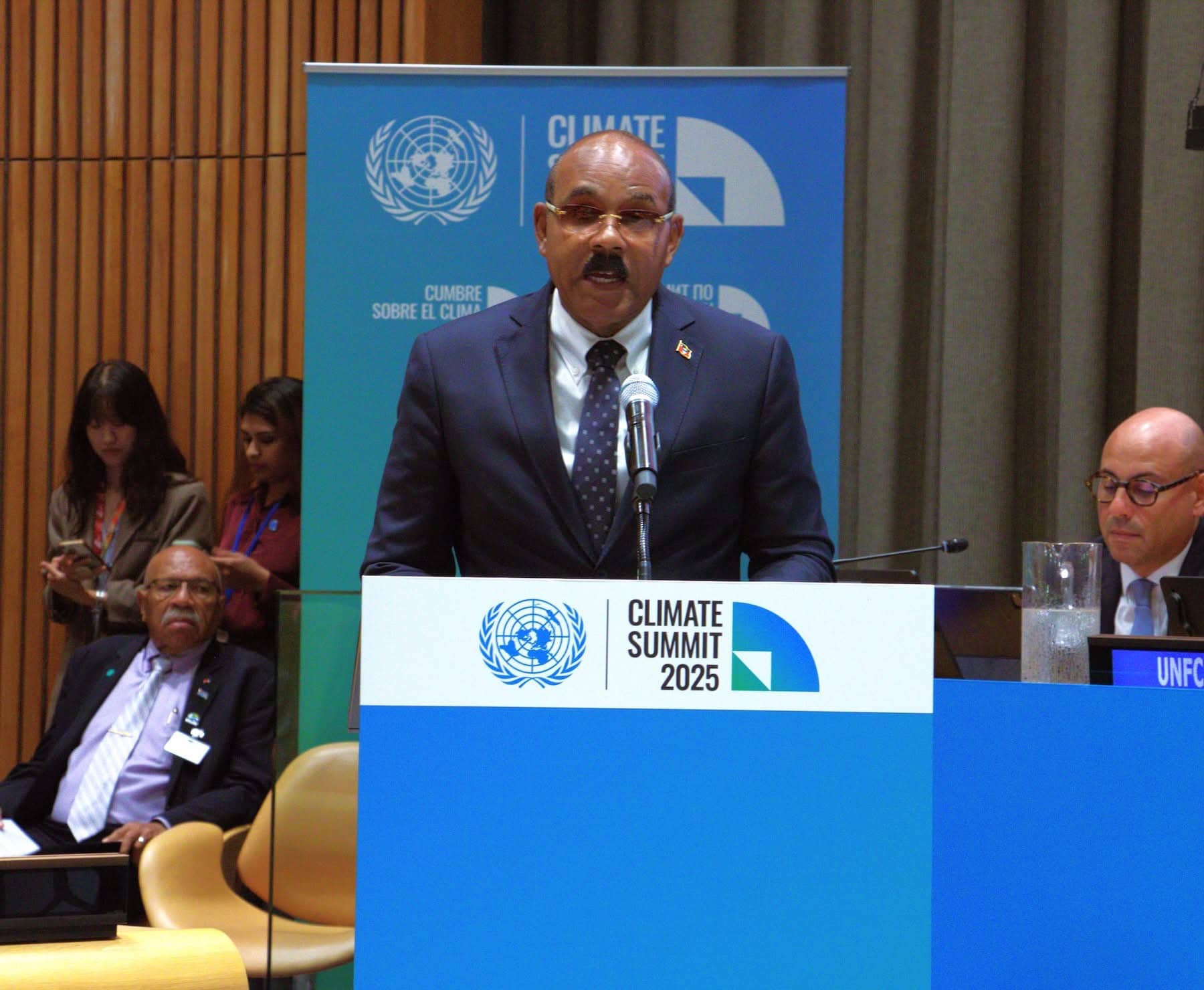At the United Nations Climate Summit on Wednesday, Prime Minister Gaston Browne of Antigua and Barbuda delivered a compelling keynote address, urging for an enforceable and equitable transition away from fossil fuels. He emphasized that those who have historically profited from fossil fuel economies must now take responsibility for funding climate justice initiatives. Addressing global leaders and multilateral institutions, Browne highlighted the disproportionate impact of climate change on Small Island Developing States (SIDS), which, despite contributing minimally to global emissions, bear the brunt of its consequences. He called for a system rooted in accountability and justice. Browne reaffirmed Antigua and Barbuda’s support for the Fossil Fuel Treaty initiative, advocating for a structured phase-out of coal, oil, and gas, supported by robust financial and technological transfer mechanisms. He warned that climate change exacerbates vulnerabilities in agriculture, fisheries, infrastructure, and livelihoods, with loss and damage already a daily reality for many small states. Browne stressed that maintaining the 1.5 °C threshold is non-negotiable for the survival of island nations, describing it as a binding scientific, moral, and legal benchmark. He criticized the global financial architecture, arguing that the largest polluters must pay through polluter-pays mechanisms, not charity, to address systemic inequities. Browne pointed out that current climate finance for adaptation, resilience, and loss and damage remains insufficient, with multilateral and international financial institutions failing to respond effectively. He projected that adaptation costs could reach $387 billion annually by 2030, with loss and damage already amounting to hundreds of billions, yet new funding remains scarce. On a national level, Browne outlined Antigua and Barbuda’s National Adaptation Plan (NAP) as a clear roadmap for resilience, with an updated Nationally Determined Contribution (NDC) set to accelerate the country’s green transformation. He urged leaders, financial institutions, development partners, and the private sector to act immediately, treating the 1.5 °C limit as a lifeline and making the polluter-pays principle the foundation of a fair transition.
Prime Minister Gaston Browne Urges Justice-Based Climate Action at UN Climate Summit
